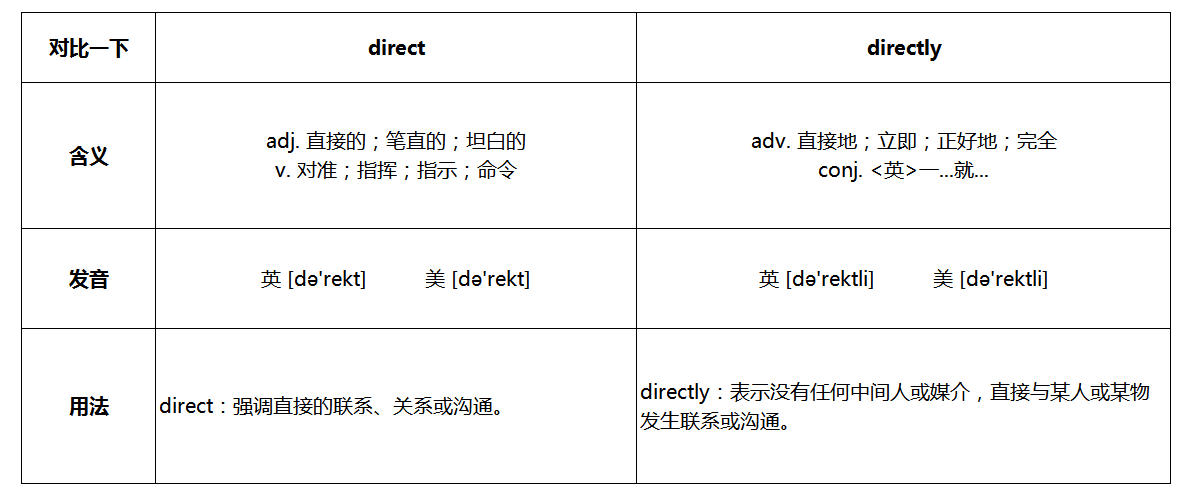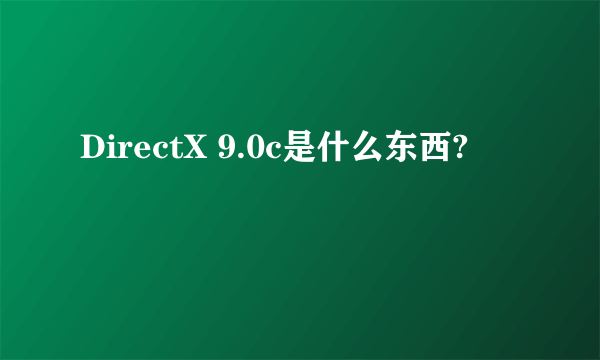direct 和directly的区别
的有关信息介绍如下:这两个词的区别我懂,direct表示没有需要通过其他人或事物来完成的步骤。directly强调直接地执行某个动作或完成某个任务,而不需要其他步骤。给大家简单总结了两个词的含义、发音以及用法,先大概的了解一下~~

接下来让我们看下direct 和directly的其他区别:
1. 方向和路径的区别:
- direct:指在特定方向上的直线路径或最短路径。
- directly:强调没有经过中间环节或转折,直接到达目的地。
例句:
- Go straight ahead and take the first direct turn to the right. (直走,然后在第一个直接的拐角处右转。)
- The bus will take you directly to the airport without any stops. (公交车会直接把你送到机场,不停留。)
2. 效果和方式的区别:
- direct:表示直接的效果或结果,没有经过中间步骤。
- directly:表示通过直接的方式或手段来达到某个结果。
例句:
- The decision had a direct impact on the company's profits. (这个决定直接影响到公司的利润。)
- He addressed the issue directly, without any delays. (他直接处理这个问题,没有拖延。)
3. 直接和间接的区别:
- direct:强调直接的联系、关系或沟通。
- directly:表示没有任何中间人或媒介,直接与某人或某物发生联系或沟通。
例句:
- Please give me your feedback directly, without involving any third parties. (请直接给我反馈,不要涉及任何第三方。)
- She talked to him directly about the issue. (她直接和他谈了这个问题。)
4. 不需要其他步骤的区别:
- direct:表示没有需要通过其他人或事物来完成的步骤。
- directly:强调直接地执行某个动作或完成某个任务,而不需要其他步骤。
例句:
- She had direct access to the files and could make changes as needed. (她直接访问文件,根据需要进行修改。)
- I will talk to the manager directly and get this issue resolved. (我会直接和经理交谈,解决这个问题。)
5. 一对一和面对面的区别:
- direct:表示与某人直接交流或面对面交谈。
- directly:强调与某人直接进行一对一的对话或沟通。
例句:
- I will direct my questions to the speaker during the Q&A session. (在问答环节,我会向演讲者提问。)
- She addressed her concerns directly to the manager. (她直接向经理提出了她的担忧。)



